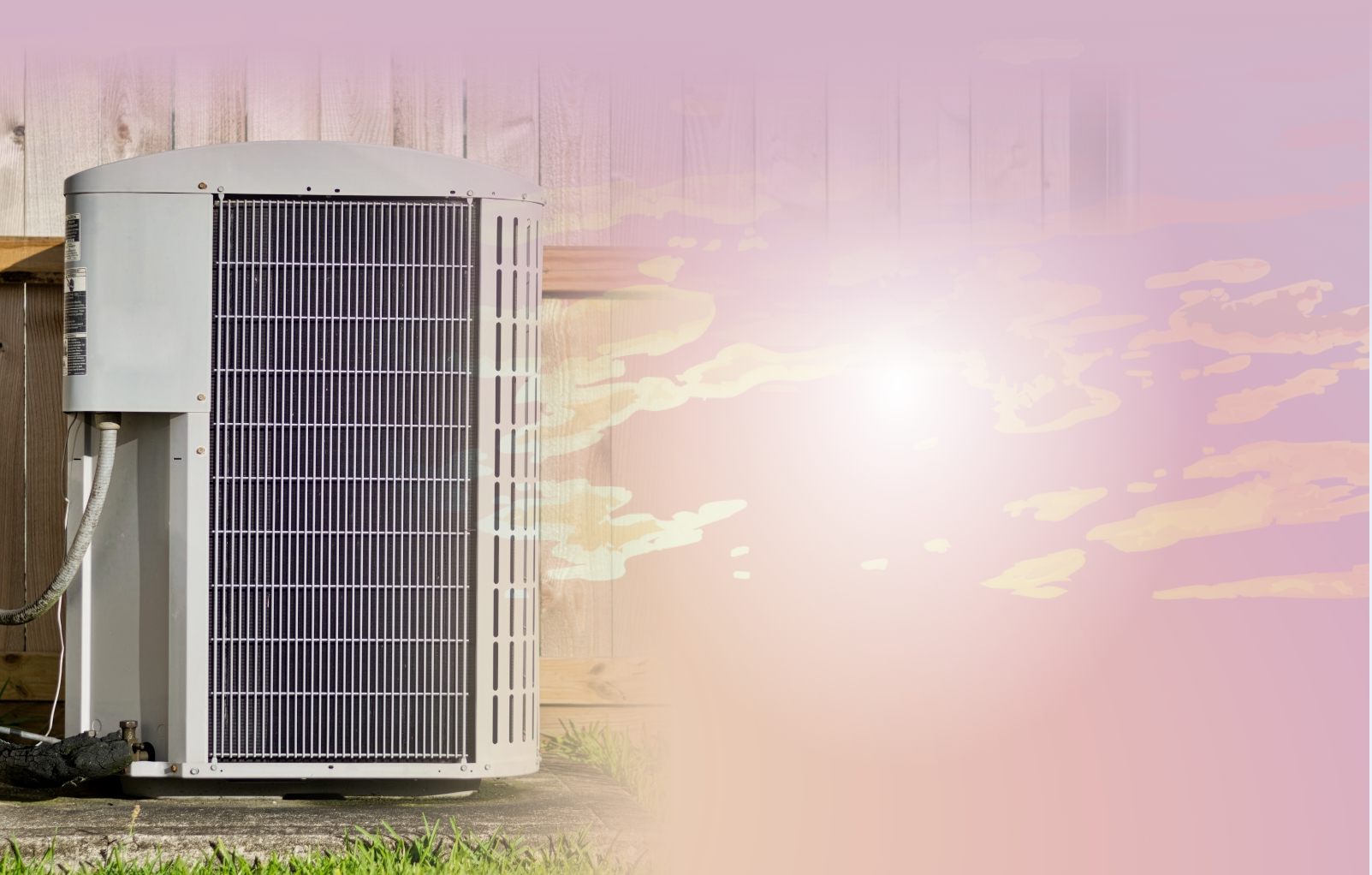If you’re one of the many people who rely on a heat pump to heat their home, you probably enjoy the warmth all winter long. But your heat pump won’t always work the way it should. Your HVAC in Moore, OK could experience heat pump issues. One common problem is leaking water. Find out why your heat pump is leaking water and what you should do about it.
Understanding How a Heat Pump Works
To comprehend why your heat pump is leaking, you need to know the basic function of a heat pump. A heat pump is like an air conditioner, but it blows heat inside of cold air. If you can understand how an AC works, you may already know how a heat pump works to keep your home comfortable. In a nutshell, the heat pump takes heat from the air outside your home and passes it to coolant in an exterior unit. The system compresses it, which raises the temperature of the coolant. Then, the heat pump moves the coolant to the inside unit. As air passes over the hot coolant, it warms up and heats your home. Of course, it’s not quite that easy. There are many moving parts that keep your system running. You can try to figure out what’s wrong with your Moore HVAC, but it’s best to call an experienced HVAC technician to repair the issue.
Common Causes of Leaking
If your heat pump is leaking, there are a few issues that could be to blame.
Dirty Coil
As simple as this might seem, a dirty coil could be the cause of your leak. The evaporator coil has the job of taking condensation from the air and draining it out of the system. When the coil is dirty, it can’t function as it should. The moisture doesn’t go down the drain and runs off the evaporator coil, which results in what looks like a leak. To determine if this is the cause, consult with an HVAC technician. They can check the coils and clean them if necessary. Additionally, they can look for other issues with your heat pump.
Frozen Coil
The refrigerant levels in your heat pump decrease over time. This may also occur if there’s a leak in the system. If you have low refrigerant levels, ice could build up in your heating system. The trouble occurs as the ice melts because it causes water to leak out. When you have frozen coils, you probably have more problems than a slow leak. Because your system needs to work harder than usual, it uses excess energy. Your energy bill might be higher than usual because of your system’s low refrigerant. If you suspect this is what’s causing your leak, you need professional assistance. Refrigerant isn’t something an untrained individual can work on. You can call a Moore HVAC specialist to remove the ice and top up your refrigerant. If you have a refrigerant leak, they need to repair it immediately. There are many dangers associated with refrigerant leaks.
Drain Clog
As part of the healing process, your heat pump collects moisture from the air and distributes it through a system of drains. Known as the condensate drain, this system of pipes is no different from your plumbing in that it’s vulnerable to clogs. Over the years, dirt, debris, and algae end up in your condensate drain. Instead of draining out, water builds up in your pipes. The water will leak out of other places, leaving behind puddles and possibly doing damage. If you have a significant clog, your heat pump might shut down. Too much water triggers the heat pump to turn off. Condensate drains can be quite lengthy. For this reason, it’s difficult to clear the clog on your own. You could try pouring bleach down your drain, but this has the potential to damage your pipes. If you want to effectively and safely clear your clog, you should consult with an expert. Once the clog is gone, water can drain through the system. As a result, the water level falls below the safety shut-off responsible for turning off your system. Then, your heat pump should resume normal functions.
An Unrelates Issue
Although a leak might seem to be coming from your heat pump, there could be another cause. It’s always a good idea to inspect the area near the dripping water or puddles for other issues. Is it possible that a plumbing leak is causing the water? Or perhaps it’s from another source. Before you call an HVAC technician, make sure the leak really is from your heat pump. Doing so could save you from making an unnecessary phone call.
What Should You Do When Your Heat Pump is Leaking?
If you notice a leak in your system, act swiftly. Shut off the heating system before anything else goes wrong. The longer you wait, the worse the issue could become. As soon as your system is off, contact an experienced professional. They can troubleshoot your heat pump and determine the best way to fix the issue. In addition to repairing your leak, they could fix another more serious issue. While you wait for the technician to arrive, think of any other issues with your system. Have you noticed any changes in how the system works? If so, mention those changes to the technician. Your information could help them diagnose the problem or find an unrelated issue.
Preventing Leaks with Regular Maintenance of Your HVAC in Moore OK
The best way to prevent leaks in your heat pump is to receive regular maintenance from a reputable HVAC technician. At least once a year, a technician should come to your home and examine your HVAC. They can check for potential issues and run through a checklist designed to keep your system running smoothly. Here at Home Comfort Solutions, we know the importance of regular heat pump maintenance. We want your system to work the way it should, no matter how cold it gets outside. You can trust us to maintain or fix your heat pump. The next time you need help with your HVAC in Moore, OK, call us.





